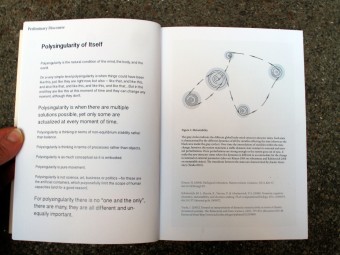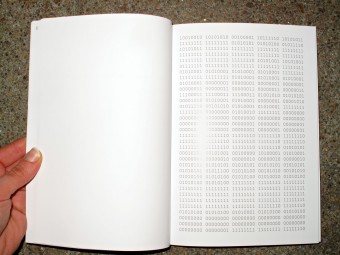Polysingularity Letters Vol. 3. Dmitry Paranyushkin.
Posted in Theory, Uncategorized on March 2nd, 2013Tags: journal, polysingularity
Polysingularity Letters Vol. 3. Dmitry Paranyushkin.
This journal documents the most recent proceedings in the field of polysingularity. This term has originally been used mainly by Russian mathematicians to describe a special class of integral equations with multiple simultaneous solutions (Simonenko, 1965; Boikov, 2000; Gabdulkhaev, 2005).
Integral equations, to put it simply, are used to discover the processes (or causes, rules, and motives) that underlie a certain behavior that can be observed. They are the reverse of differential equations (dx/dt so much loved by Deleuze) that are used to discover how a certain already known process behaves over time. Polysingularity is the condition where several distinct sets of interacting processes may lead to the same behavior or phenomena. That’s why we refer to it as a study of co-isolated multiplicities that nevertheless retain their singularity. In other words, we don’t look at a phenomenon trying to understand how it works. Instead, we look at and study all the different contexts that are creating the conditions for the phenomenon to emerge. It’s not about why you love, but what else happens while you love. It ‘s not about finding the structure, it’s about complete and total engagement with each singularity not losing the multiplicity out of sight.
Such approach allows us to go one step beyond the contingency and equalized distancing that any speculative post-practice necessarily produces for the sake of its own safety. Instead, we jump into the abyss of the unknown and indefinable with the renewed fervor even if we know that at the very end we might fall down (although in this case we hope to bounce back sideways up). Hence the journal format, I guess. The barcode is just there to help computers catalogue, categorize, and distribute the knowledge, which in the end is going to alter their binary rationale in ways that are not yet predictable, but that are several.
English Language
Produced by Nodus Labs
D 25€






